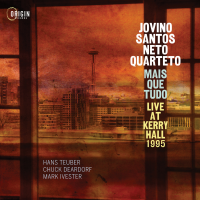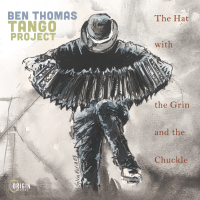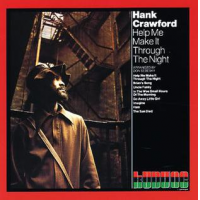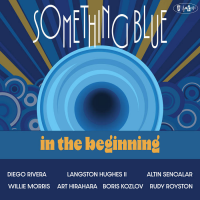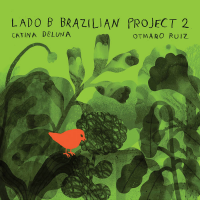Home » Jazz Articles » Liner Notes » Ryan Kisor: Power Source
Ryan Kisor: Power Source
Ryan Kisor
trumpetb.1973
Kisor's obvious talents would help him overcome the obstacles and through his work in some of today's great jazz ensembles (i.e. the Gil Evans Orchestra, Charlie Haden's Liberation Music Orchestra, the Carnegie Hall Jazz Band, and the Mingus Big Band) he has blossomed into the experienced soloist that currently makes him a "first call" player among his peers. Currently it's his role in the Lincoln Center Jazz Orchestra that gets top priority. "They keep me pretty busy," says Kisor. "We're on the road probably six months a year."
Five years separate the last of those two now out-of-print Columbia dates from Kisor's debut as a leader on Criss Cross. While 1998's Battle Cry (Criss Cross 1145) found him taking the atypical role of lead voice in front of organist

Sam Yahel
organ, Hammond B3
Peter Zak
piano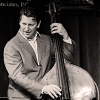
John Webber
bass, acoustic
Willie Jones III
drumsb.1968

Horace Silver
piano1928 - 2014
Sharing the front line once again with tenor phenom

Chris Potter
saxophone, tenorb.1971

James Genus
bassb.1966

Gene Jackson
drums
Dave Holland
bassb.1946

Red Rodney
trumpet1927 - 1994

Paul Motian
drums1931 - 2011

Billy Hart
drumsb.1940

Renee Rosnes
pianob.1962
Bassist James Genus is a native of Hampton, Virginia and garnered his first critical notice as a member of pianist Ellis Marsalis' group. With a degree in Jazz Studies from the Virginia Commonwealth University in hand, Genus moved to New York City in the late '80s and has stayed busy ever since playing both acoustic and electric bass with a range of jazz talent including

Roy Haynes
drums1926 - 2024

Greg Osby
saxophoneb.1960

David Sanborn
saxophone1945 - 2024

Horace Silver
piano1928 - 2014

Dave Douglas
trumpetb.1963

Bob James
pianob.1939

Kevin Eubanks
guitarb.1957

Wayne Shorter
saxophone1933 - 2023
 "
data-original-title="" title="">Hugh Masakela,
"
data-original-title="" title="">Hugh Masakela, 
Branford Marsalis
saxophoneb.1960

Dave Holland
bassb.1946

Andrew Hill
piano1931 - 2007
Kisor's upbeat title track puts a new twist on the conventional 32 bar form, with the middle eight bars riding over an offbeat suspension that provides for some interaction between the lead voices. "That tune is just something I had been working on before the date and then when I found out what the instrumentation was going to be I wrote the bridge with that answering back and forth kind of thing with me and Chris." Articulate and patient with the development of his solo, Kisor hints at the hidden pleasures of simplicity. Potter's spot is definitely more effusive, with Gene Jackson's drumming serving as a very active catalyst.
Clocking in at well over ten minutes, "Salome's Dance" proves to be the set's cornerstone. This winning Potter original reflects the influence of bassist and writer Dave Holland, one of the saxophonist's current bosses, with its pseudo rock beat over a bass vamp that at times recalls a similar phrase from Herbie Hancock's "Blow Up." The tune's intriguing melody, which spills across bar lines, also manages to take on a Silverish (i.e. Horace Silver) cast that is highly attractive. As for the solos, Potter's up first and he dips into the lower register, alternating those robust wails with flurries of brisk passages up and down the horn. Kisor picks up with some textural nuance of his own, in addition to exploring the higher stratosphere. A decidedly frenetic drum solo from Jackson then leads to the collective interplay between Chris and Ryan that wraps up the selection.
Considering that Kisor, Potter, and Jackson have all been charter members of the Mingus Big Band, it comes as no surprise that a couple of the bassist's compositions are part of the program. The extended form of the Mingus homage, "Duke Ellington's Sound of Love," offers its share of challenges, with a beautiful melody line that manages to surreptitiously include an upturned phrase from

Billy Strayhorn
piano1915 - 1967
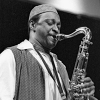
George Adams
saxophone, tenorb.1940

Jack Walrath
trumpetb.1946
One of the jazz world's most respected writers,

Jimmy Heath
saxophone, tenor1926 - 2020
More Mingus material provides fodder for Kisor and associates. "Boogie Stop Shuffle" is a timeless classic from the 1959 Columbia sessions that yielded the essential Mingus Ah Um. The original version sported a large ensemble and rich harmonies and it's remarkable how Kisor and Potter have managed to give the impression of a much larger group simply by utilizing the various registers of their horns. Kisor voices the lead with a mute in hand and then Potter takes on the melody, while the trumpeter punctuates with some wah-wah effects. The lead players contribute solid statements before alternating 12-bar solos with Jackson, a reprise of the opening melody and a dramatic high octave trill then serving as the final climax.
Another very resourceful Potter original, "Pelog," politely makes the scene with a loping two beats to the beat. Its melody has an almost singsong character that brings to mind a children's nursery rhyme. Kisor starts with muted horn and then stays with it through the opening solo statement, at first with just bass in support and then with the drums joining the fold and the tempo doubling. The same sort of routine is picked up by Potter, who gets underway by sparring with Jackson in the spirit of those exalted moments when

John Coltrane
saxophone1926 - 1967

Charles Lloyd
saxophoneb.1938

Ornette Coleman
saxophone, alto1930 - 2015

Don Cherry
trumpet1936 - 1995

Charlie Haden
bass, acoustic1937 - 2014

Billy Higgins
drums1936 - 2001
"The thing about the album that I was happy with was that even though we hadn't played much together as a group, it came off real nice." One would tend to concur with Kisor's understated compliment. It just goes to show you how the most pleasant surprises can come your way when you're least expecting them.
Liner Notes copyright ? 2025 C. Andrew Hovan.
Power Source can be purchased here.
Contact C. Andrew Hovan at All About Jazz.
An avid audiophile and music collector, Chris Hovan is a Cleveland-based writer / photographer / musician.
Track Listing
Power Source, Salome's Dance, Duke Ellington's Sound Of Love, New Picture, Boogie Stop Shuffle, Pelog, Bird Food.
Personnel
Album information
Title: Power Source | Year Released: 1999 | Record Label: Criss Cross
Tags
Comments
PREVIOUS / NEXT
Ryan Kisor Concerts

Jazz at Lincoln Center Orchestra with Wynton Marsalis
Wharton Center For Performing ArtsEast Lansing, MI
Support All About Jazz
 All About Jazz has been a pillar of jazz since 1995, championing it as an art form and, more importantly, supporting the musicians who make it. Our enduring commitment has made "AAJ" one of the most culturally important websites of its kind, read by hundreds of thousands of fans, musicians and industry figures every month.
All About Jazz has been a pillar of jazz since 1995, championing it as an art form and, more importantly, supporting the musicians who make it. Our enduring commitment has made "AAJ" one of the most culturally important websites of its kind, read by hundreds of thousands of fans, musicians and industry figures every month.
Go Ad Free!
To maintain our platform while developing new means to foster jazz discovery and connectivity, we need your help. You can become a sustaining member for as little as $20 and in return, we'll immediately hide those pesky ads plus provide access to future articles for a full year. This winning combination vastly improves your AAJ experience and allow us to vigorously build on the pioneering work we first started in 1995. So enjoy an ad-free AAJ experience and help us remain a positive beacon for jazz by making a donation today.

New York City
Concert Guide | Venue Guide | Local Businesses
| More...









 Buy Now
Buy Now




